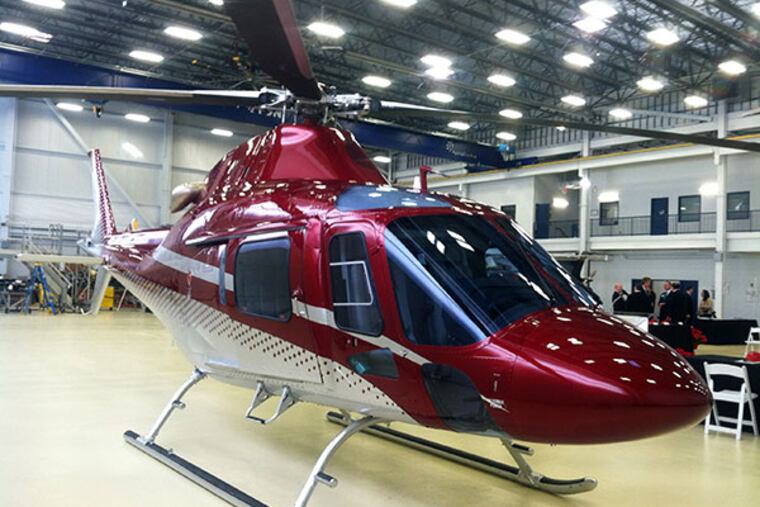Manufacturing growth here has key challenges
Empty factories, their gates chained, their windows shattered, their roofs open to the rain, their vacant yards overgrown, their machines rusted and broken in empty lots - the artifacts of Philadelphia's once proud manufacturing industry tell the sad story of what used to be and is no more.

Empty factories, their gates chained, their windows shattered, their roofs open to the rain, their vacant yards overgrown, their machines rusted and broken in empty lots - the artifacts of Philadelphia's once proud manufacturing industry tell the sad story of what used to be and is no more.
But in a bright aviation hangar in Northeast Philadelphia - a factory where dozens of helicopters are manufactured each year - the mood was upbeat Thursday as government officials and business leaders drew a brighter picture for the future of manufacturing in Philadelphia.
"We cannot bring back the old factory jobs of my father's time," City Councilman Bobby Henon said.
But, he added, the city can "become an advanced manufacturing hub in the coming decades."
Henon, one of four cochairmen of Mayor Nutter's Manufacturing Task Force, was addressing more than 100 business and government leaders at the helicopter plant AgustaWestland for the presentation of the task force's 97-page report.
To recapture Philadelphia's rich manufacturing past in a new way, hurdles must be overcome, the report said.
The lack of a robust venture-capital community, concerns over the readiness of the region's manufacturing workforce, and problems with the city's tax and regulatory climate are hampering the city's and region's abilities to increase manufacturing and capitalize on the innovations developed by area research institutions.
Here are some key points:
Regional manufacturing generates $105.6 billion in output a year.
Philadelphia city manufacturers pay $1.3 billion in annual wages to 23,000 employees, who earn an average of $58,997 a year. Of the 750 manufacturing firms in the city, 575 employ fewer than 20 people. Regionally, 163,000 are employed in manufacturing.
The city's competitive strengths are in chemicals, medical equipment, machinery, food processing, transportation, equipment, and parts. An advantage is its transportation infrastructure.
Manufacturers complain about the city's complicated tax structure.
The task force recommended that new loan and equity funds be created specifically for small manufacturers investing in product development.
Middle- and upper-market companies, said another cochair, Daniel K. Fitzpatrick, chief regional executive of RBS Citizens Bank, can gain access "to more capital than what you know what to do with - and it's very cheap."
The problem is that small companies may need financing to innovate, but it isn't as available.
Manufacturers are also concerned about the availability and readiness of the local workforce.
For example, one unnamed company mentioned in the report received 780 requests for applications for openings.
Only 475 completed the applications after being notified that a drug test would be required.
Of the 475, 430 were asked to take an employment test. Of the 430, only 75 passed a test based on eighth-grade literacy. Of those, only 29 passed through another screening for workforce compatibility. Of them, 15 were offered jobs.
The task force recommends more emphasis on science, technology, engineering, and math. It urges technical-education programs in the high schools and community colleges.
The task force was chaired by Fitzpatrick, Henon, Alan Greenberger, the deputy mayor of economic development, and William Hunt, chief executive of AgustaWestland.
BY THE NUMBERS
163,000
People employed
in the region
in manufacturing.
$105.6B
Amount generated by manufacturing in the region each year.
$1.3B
Wages paid to 23,000 each year
by Philadelphia manufacturers.
750
Manufacturing firms in Philadelphia.
EndText
215-854-2769
@JaneVonBergen